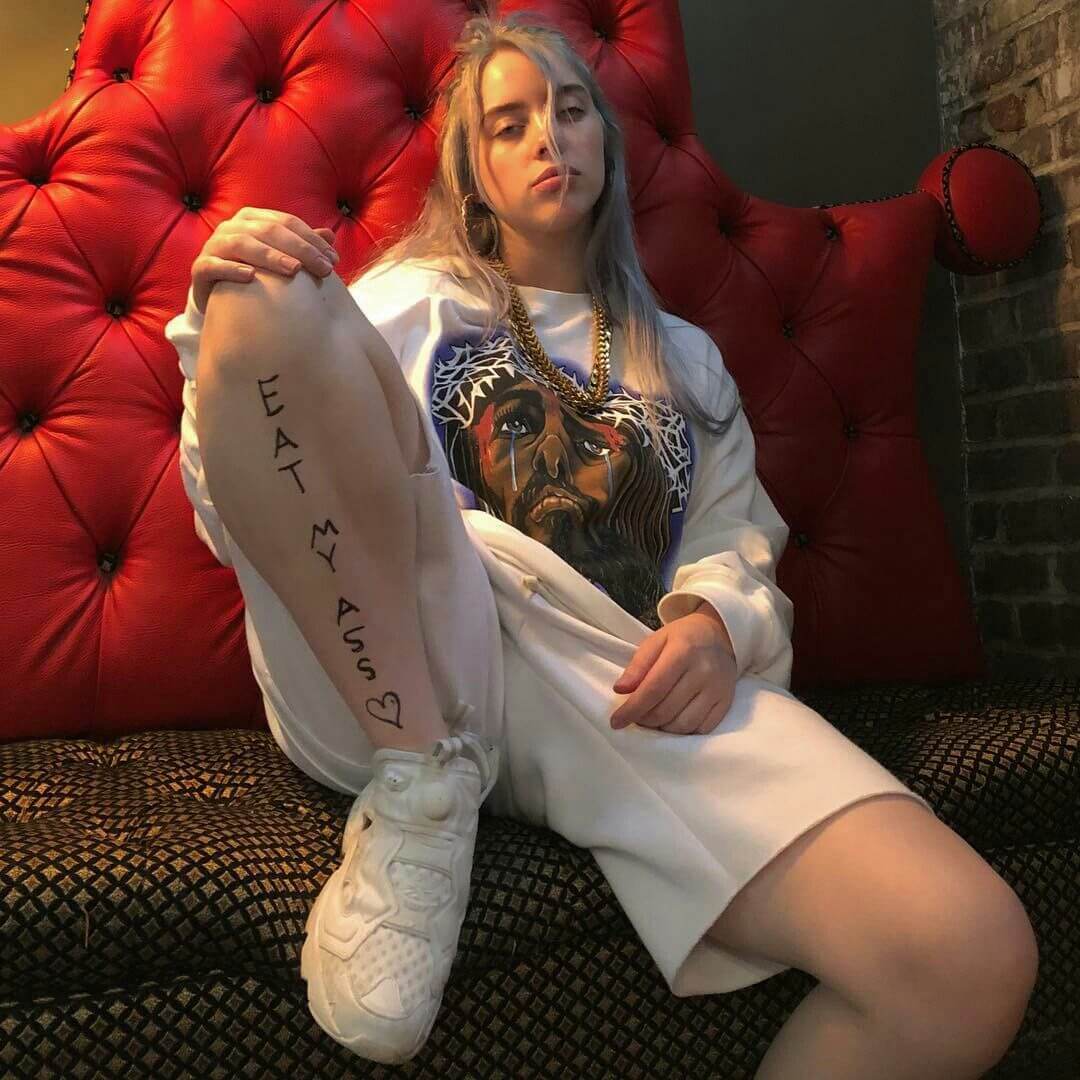Billie Eilish, a name that resonates with music lovers worldwide, has become a cultural icon not just for her haunting melodies but also for her unique approach to body image and self-acceptance. In recent years, discussions surrounding celebrities often intertwine with their physical attributes, and Billie is no exception. The conversation about "Billie Eilish butt" has emerged, reflecting societal views on body image and the pressure that comes with fame.
In this article, we will delve deeper into Billie Eilish's life, her music career, and how she navigates the complexities of public scrutiny regarding her appearance. We will also explore the implications of body image in the entertainment industry, particularly how it affects young women today.
Through thorough research and insights, this article aims to provide a comprehensive understanding of Billie Eilish as an artist and a person, moving beyond the superficial discussions that often dominate celebrity news. Stay tuned as we unpack the layers of her journey and the messages she communicates through her music and public persona.
Table of Contents
- 1. Biography of Billie Eilish
- 2. Early Life and Musical Beginnings
- 3. Rise to Fame
- 4. The Body Image Discussion
- 5. Influence on Youth Culture
- 6. Music and Messages
- 7. Personal Life and Advocacy
- 8. Conclusion
1. Biography of Billie Eilish
| Full Name | Billie Eilish Pirate Baird O'Connell |
|---|---|
| Date of Birth | December 18, 2001 |
| Place of Birth | Los Angeles, California, USA |
| Genres | Electropop, Indie Pop |
| Years Active | 2015 - Present |
Billie Eilish was born into a family of musicians, with her parents being actors and musicians themselves. This creative environment fueled her passion for music from a young age. She gained recognition with her debut single "Ocean Eyes," which was written by her brother Finneas O'Connell, marking the beginning of her illustrious career.
2. Early Life and Musical Beginnings
Growing up in Los Angeles, Billie was homeschooled, allowing her to focus on her music. At the age of 14, she released "Ocean Eyes," which quickly went viral. Her unique sound, characterized by emotional depth and haunting melodies, captured the attention of listeners and critics alike.
In 2017, Billie released her debut EP, "Don't Smile at Me," which solidified her place in the music industry. Her music often reflects her experiences, including struggles with mental health, self-image, and relationships.
3. Rise to Fame
Billie's rise to fame was meteoric. By the time she was 17, she had already won multiple awards, including Grammy Awards for Record of the Year, Album of the Year, and Song of the Year. Her sophomore album, "When We All Fall Asleep, Where Do We Go?" debuted at number one on the Billboard 200 chart, showcasing her immense popularity.
Her distinct style, both musically and in fashion, has made her a trendsetter among young audiences. She often challenges conventional beauty standards, opting for oversized clothing and a unique aesthetic that speaks to her identity and message.
4. The Body Image Discussion
As a public figure, Billie has faced scrutiny regarding her body, particularly her butt and overall appearance. The discussions surrounding "Billie Eilish butt" serve as a reminder of how society often objectifies women, reducing them to their physical attributes.
- Billie's response to body shaming has been empowering; she often speaks out against the unrealistic standards imposed by society.
- Her music videos and performances incorporate themes of self-acceptance and body positivity.
- She uses her platform to advocate for mental health awareness and self-love.
5. Influence on Youth Culture
Billie's influence extends far beyond her music. She has become a role model for many young people, particularly young women. Her candidness about her struggles with mental health, body image, and authenticity resonates deeply with her audience.
Through her social media presence, Billie encourages her fans to embrace their individuality and reject societal pressures. She promotes messages of self-love and acceptance, empowering her followers to be true to themselves.
6. Music and Messages
Billie's music is rich with themes that address the complexities of youth culture. Her lyrics often tackle subjects such as anxiety, heartbreak, and self-identity. Songs like "When the Party's Over" and "Bellyache" reflect her introspective nature and emotional depth.
By sharing her vulnerabilities, Billie creates a connection with her listeners, fostering a sense of community among those who relate to her experiences. This authenticity is a significant aspect of her appeal, making her music impactful and relatable.
7. Personal Life and Advocacy
Outside of her music career, Billie is known for her advocacy work. She has openly discussed her struggles with mental health, using her platform to raise awareness about issues such as depression and anxiety. Her willingness to share her personal experiences encourages others to seek help and speak out about their struggles.
Billie also supports various causes, including climate change activism and body positivity campaigns. Her commitment to making a difference amplifies her status as an influential figure in today's society.
8. Conclusion
In conclusion, Billie Eilish's journey is a testament to the power of music and the importance of body positivity and self-acceptance. While discussions about her physical appearance, such as "Billie Eilish butt," often dominate headlines, it is essential to recognize the depth of her artistry and the messages she conveys through her work.
As fans and admirers, we should celebrate Billie for who she is as an artist and a person. Let us continue to support her journey, engage in meaningful conversations about body image, and promote a culture of acceptance and self-love.
Feel free to share your thoughts in the comments below, and don't forget to check out our other articles for more insights into the world of music and celebrity culture!
Article Recommendations


